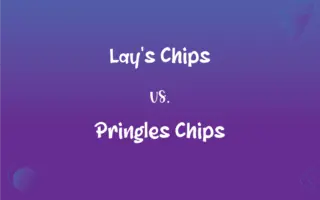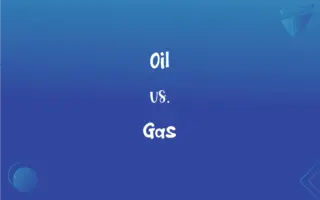Collusive Oligopoly vs. Non-Collusive Oligopoly: What's the Difference?
Edited by Aimie Carlson || By Harlon Moss || Published on February 26, 2024
Collusive oligopoly involves firms collaborating on decisions like pricing, while non-collusive oligopoly has firms acting independently, often leading to competitive practices.

Key Differences
In a collusive oligopoly, firms cooperate, often secretly, to set prices or output levels, avoiding competition. Non-collusive oligopoly features firms that compete independently, not engaging in agreements or collaboration.
Collusive oligopolies lead to market behaviors resembling monopolies, with higher prices and restricted output. Non-collusive oligopolies encourage competitive pricing and innovation, as firms act independently to capture market share.
Collusive oligopoly is often illegal or regulated due to its anti-competitive nature, as it can lead to price-fixing. Non-collusive oligopoly, being competitive and independent, is generally within legal bounds and encouraged in free-market economies.
Consumers may face higher prices and less choice in a collusive oligopoly due to controlled market conditions. In a non-collusive oligopoly, consumers often benefit from competitive prices and diverse options.
Collusive oligopolies tend to be more stable but less dynamic, as firms avoid competition. Non-collusive oligopolies are dynamic, with frequent changes in prices and products, reflecting ongoing competition.
ADVERTISEMENT
Comparison Chart
Collaboration among Firms
High level of cooperation on prices and output
Independent decision-making
Market Behavior
Resembles monopolistic behavior
Encourages competitive practices
Legality and Regulation
Often illegal or heavily regulated
Generally legal and less regulated
Impact on Consumers
Higher prices, less choice
Competitive prices, more options
Market Dynamics
Stable but less dynamic market
Dynamic market with frequent changes
ADVERTISEMENT
Collusive Oligopoly and Non-Collusive Oligopoly Definitions
Collusive Oligopoly
Collusive oligopoly is where firms in an oligopoly secretly agree on prices or output.
The major oil companies forming a cartel to set fuel prices is an example of a collusive oligopoly.
Non-Collusive Oligopoly
It encourages competitive behavior and innovation among oligopolistic firms.
Smartphone companies constantly innovating to outdo each other represent a non-collusive oligopoly.
Collusive Oligopoly
It involves coordinated actions among oligopolistic firms to control the market.
Smartphone manufacturers agreeing to fix prices is a case of collusive oligopoly.
Non-Collusive Oligopoly
Non-collusive oligopoly features firms competing independently without agreements.
Different car manufacturers independently setting prices and features is a non-collusive oligopoly.
Collusive Oligopoly
Such oligopolies aim to maximize joint profits and minimize competition.
Cement manufacturers agreeing to limit production to keep prices high is collusive oligopoly.
Non-Collusive Oligopoly
Non-collusive oligopolies operate within legal and competitive market norms.
Fast-food chains independently setting prices and menu items demonstrate non-collusive oligopoly.
Collusive Oligopoly
Collusive oligopolies often result in higher prices and less competition.
Airlines fixing ticket prices represent a collusive oligopoly.
Non-Collusive Oligopoly
Such oligopolies are dynamic with frequent changes in market strategies.
Retail chains altering marketing strategies to compete is an example of non-collusive oligopoly.
Collusive Oligopoly
Collusive oligopoly practices are typically illegal or regulated.
Tech companies colluding on patent usage and pricing fall under collusive oligopoly.
Non-Collusive Oligopoly
Non-collusive oligopolies often result in varied pricing and more options for consumers.
Airlines independently varying ticket prices and routes is a characteristic of non-collusive oligopoly.
FAQs
Can collusive oligopolies result in higher prices?
Yes, due to controlled market conditions.
Are collusive oligopolies legal?
They are often illegal or heavily regulated due to anti-competitive practices.
What defines a non-collusive oligopoly?
Firms act independently and compete with each other.
What is a collusive oligopoly?
It's an oligopoly where firms collaborate on prices or output.
How does a non-collusive oligopoly benefit consumers?
It leads to competitive pricing and more choices.
Are non-collusive oligopolies dynamic?
Yes, they are dynamic with frequent market changes.
How do collusive oligopolies impact market choice?
They often lead to less choice for consumers.
Do non-collusive oligopolies encourage innovation?
Yes, firms compete and innovate to gain market share.
Can you give an example of a non-collusive oligopoly?
Different car brands independently competing on features and pricing.
Can collusive oligopolies lead to monopolistic behaviors?
Yes, as firms collaborate to control the market.
Do non-collusive oligopolies change market strategies frequently?
Yes, they often adjust strategies to remain competitive.
What is an example of a collusive oligopoly?
Oil companies forming a cartel to set prices.
Why are collusive oligopolies less dynamic?
Firms avoid competition and maintain stable conditions.
Are non-collusive oligopolies legally compliant?
Generally, yes, they comply with competitive market norms.
What kind of market strategies do collusive oligopolies use?
They use coordinated strategies to control prices and output.
Can a market switch from collusive to non-collusive oligopoly?
Yes, if firms cease collaboration and start competing independently.
Do non-collusive oligopolies offer diverse options to consumers?
Yes, due to the independent and competitive nature of firms.
Is price-fixing a feature of collusive oligopolies?
Yes, firms often agree on prices in a collusive oligopoly.
How do firms in a non-collusive oligopoly set prices?
They set prices independently based on market competition.
Is market stability higher in collusive oligopolies?
Yes, due to coordinated actions among firms.
About Author
Written by
Harlon MossHarlon is a seasoned quality moderator and accomplished content writer for Difference Wiki. An alumnus of the prestigious University of California, he earned his degree in Computer Science. Leveraging his academic background, Harlon brings a meticulous and informed perspective to his work, ensuring content accuracy and excellence.
Edited by
Aimie CarlsonAimie Carlson, holding a master's degree in English literature, is a fervent English language enthusiast. She lends her writing talents to Difference Wiki, a prominent website that specializes in comparisons, offering readers insightful analyses that both captivate and inform.






































































